American Expansion and the American-Spanish War
1/102
There's no tags or description
Looks like no tags are added yet.
Name | Mastery | Learn | Test | Matching | Spaced | Call with Kai |
|---|
No study sessions yet.
103 Terms
Imperialism
The policy in which a stronger nation extends its economic, political, or military control over a weaker territory - political, territorial, economic
Three types of imperialism
Political - government control (ex. Britain over India)
Territorial - direct control of land (ex. U.S. over Latin America)
Economic - investment into a county to control them, threatening/promising business, trade (ex. Europe over Africa)
Global Race for Resources
Economic competition was the key driver for imperialism - industrialization led to increased production which led to a greater desire to expand markets to sell surplus goods - America wanted to access China’s huge population which required establishing trade routes - foreign trade competed with American businesses, so we desired to achieve a favorable trade balance - established trade policies that protected American investment and business - America rivaled with Germany, Britain, and Japan
Manifest Destiny
Belief that America was destined to expand across the continent (expansionism) - the term was coined by John L O’Sullivan and began with the war with Mexico (annexation of Texas) - MD was used to justify western expansionism based on the idea of American exceptionalism (past California to other nations)
Economic Arguments FOR Imperialism
Imperialism provides new markets and resources which creates jobs/industry - creates economic opportunities at home
Economic Arguments AGAINST Imperialism
Exploits local populations and resources - the economic benefits often only go to a small elite - money used for it would be better spent on social issues - progressive view
Cultural/Moral Arguments FOR Imperialism
Spreads “civilization” and Western values, education, and religion - Our Country (Strong) and White Man’s Burden (Kipling) brought these ideas to pass
Nationalism: the belief that America is the most evolved nation - Social Darwinism - supported by Roosevelt, Lodge, Hearst (journalist)
Global Competition - we can’t let other nations get ahead (Europe got Africa, Japan wants China)
Cultural/Moral Arguments AGAINST Imperialism
Undemocratic - the U.S. was once a colony itself - the people get no voice in the matter
Isolationism - keep out of European wars, we have two oceans to protect us
Unnecessary - much of the U.S. is still to be explored - we already have many resources
Military argument for imperialism
Imperialism would create a strong/modern U.S. Navy which would protect the trade of America - military power = political power - Alfred T. Mahan
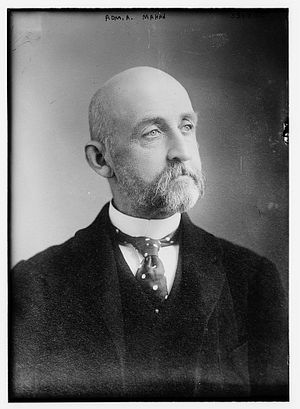
Alfred T. Mahan
Advocate for a strong/modern U.S. Navy - wrote “The Influence of Sea Power upon History 1660-1783” - a navy would protect U.S. commercial interests (be able to trade transcontinentally with maximum profit) - need to acquire strategic bases, such as building a canal across the central-American isthmus (Panama canal - he is the first with this idea) - military power = political power
Monroe Doctrine
Issued by President James Monroe in 1823 - goal is to keep the Old and New Worlds separate - warned European powers against further colonization in the Americas/Western Hemisphere - lays foundation for empire building/spheres of influence - Roosevelt corrolary is an addition to this
Venezuela Crisis of 1895
Disute arose over the British-Guiana and Venezuela border of gold claims - Britain expands control and threatens war - U.S. Secretary of State Richard Olney invoked Monroe Doctrine (first time) - Grover Cleveland threatened war and claimed Britain trespassed on Venezuela - shows the world that the Western Hemisphere is under U.S. influence
Results of Venezuela Crisis of 1895
Britain recognizes Monroe Doctrine
Damage to trade
Canada open to attack
Conflict in South Africa is distracting for Britain (they can’t afford war)
U.S. is a better friend than enemy
The world takes notice!
The Alaska Purchase
In 1867, the U.S. bought Alaska from Russia for $7.2 million - Alex II sells it to avoid future warfare after the humiliation of the Crimean War - greatly expanded U.S. territory - many called it “Seward’s Folly” or “Seward’s Icebox” after Secretary of State William Seward (they thought it was a waste of money with no resources) - Alaska is rich in timber, minerals, and oil - one of our first territorial acquisitions
The Annexation of the Midway Islands
Occurred in 1867, the same year as the Alaska Purchase - North Pacific ocean - annexed by the U.S. under President Andrew Johnson - claimed for guano (bird droppings) deposits, used as fertilizer - strategic location for refueling ships across the Pacific
Commodore Matthew Perry’s expedition to Japan
In 1853, Matthew Parry led a U.S. naval expedition to Japan - his mission was to force open Japan to trade with the US - Japan had been isolated for over 200 years under the Sakoku policy - he arrived with four Blackships (advanced, steam-powered warships) - successful
Hawaiian Sugar
Americans made agreements with Hawaiians not to sell land to anyone - in return, their Hawaiian sugar would be duty-free (no shipping taxes so they can compete with Cuban sugar) - American sugar plantations in Hawaii comprised 75% of its wealth - in 1887 they pressure Hawaii for Pearl Harbor as a Naval Base
The Hawaiian Revolution
American government revokes duty-free status of sugar - in 1893 American sugar planters in Hawaii overthrew the sovereign government (Hawaiian monarchy) - Queen Liliuokalani was deposed by a small group of wealthy Americans - Hawaii becomes a territory
The Hawaiian Annexation Debate
President Harrison supported it
President Cleveland opposed it and investigated the revolution - found that most Hawaiians didn’t want Annexation, but Cleveland couldn’t unseat white planters without force
Cleveland’s Dilemma
He believed the U.S had wronged Queen Liliuokalani but couldn’t restore her to power without military force - American public opinion wouldn’t support military action - the Annexation was put on hold until 1898
American Interest in Cuba
US long interested in Cuba and wanted to buy it from Spain - during the First Cuban War for Independence (1868-1878 - aka Ten Years War) Americans sympathize with Cuba - 1886 abolition of slaver leads to US investment in sugarcane
Cuba’s Revolt against Spain
In 1895, Cuba rebelled against Spanish colonial rule (2nd Cuban War for Independence - “Cuba Libre”) - Jose Marti (poet and journalist) leads, martyred - Revolt was caused by economic factors, US tariff on sugar hurt Cuba’s economy (Hawaii wanted to compete with Cuba) - the rebels adopted a scorched-earth strategy to force Spain out - Guerilla campaign destroys American-owned sugar mills/plantations - American public opinion split (business wants to side with Spain and the general public wants to side with Cuba)
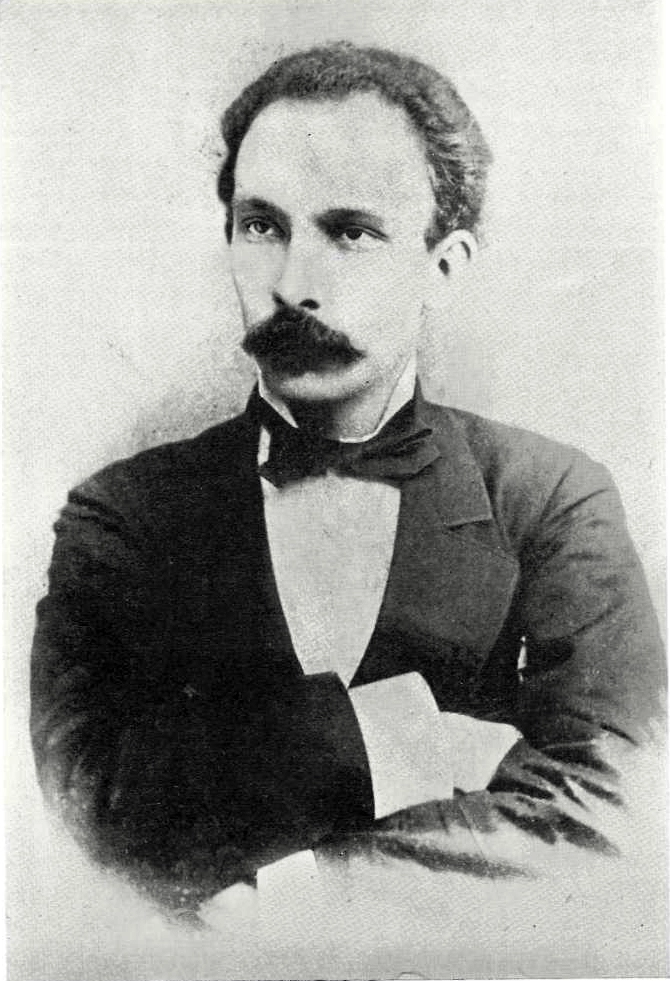
Jose Marti
Poet and Journalist who led the 2nd Cuban War for Independence and was martyred, inspiring others to join the cause
Strategic Importance of Cuba
Cuba was important for Caribbean shipping routes and could affect access to a future Panama Canal - US scared about European influence so close to its shores
Spain Reconcentration Camps
Overseen by General Valeriano Weyler (sent to Cuba in 1896 to restore order) - these are places where the Spanish government forced native Cubans to live in order to separate them from insurgents during the 2nd War for Cuban Independence and later during the Spanish American War - 300,000 Cubans forced to move - Over 30% die from disease, starvation, and lack of medicine (not sufficient resources)
Headline Wars
Newspapers exploit Weyler’s reconcentration camps in circulation war (“butcher Weyler”) - Joseph Pulitzer (NEw York World) and William Randolph Hearst (New York Journal) compete in NY for the most sensational headlines
Yellow Journalism
Sensational (fake/exaggerated) writing used to lure and enrage readers - sways public opinion
Questions of Intervention in 2nd War for Cuban Independence
Intervention could protect American interests and help Cubans - it would also mean war with Spain - McKinley is unsure what to do - de Lome letter
The de Lome Letter
Yellow Journalism has Americans calling for war - McKinley wants to avoid war and tries diplomacy to resolve crisis - private letter by Spanish minister de Lome got published - he warns Spain that the US will go to war and insults McKinley (insulting the president insults the country) - says the Americans are jingoes
Jingoism
Extreme patriotism/nationalism leading to war
Explosion of the USS Maine
Spain apologizes for the de Lome letter, de Lome resigns (they know USA will win a war), but the American public is still angry (tension is increasing) - in 1898, US sent USS Maine to Havana harbor - Maine explodes under mysterious circumstances - through yellow journalism, the newspapers blame Spain (“to hell with Spain, remember the Maine”)
Spanish American War
In 1898, the US declares war on Spain - Spain agreed to most US demands but public opinion still favored war - war only lasted a few months
War in Philippines (SAW)
First battle with Spain occurs n Spanish colony of the Philippines - Commodore George Dewey destroyed Spanish fleet in Manila Harbor - Filipinos, led by Emilio Aguinaldo, support Dewey - in August 1898, Spanish troops in Manila surrender to the US
Commodore George Dewey
Destroyed the Spanish fleet in Manila Harbor during the Spanish-American War
Emilio Aguinaldo
Led the Filipino troops in the Spanish American war is support of Dewey and the US
War in Caribbean
US blockades Cuba, including the Spanish fleet in Santiago de Cuba harbor - Unlike the navy, the US army has a small force with many volunteers - the volunteers are ill-prepared and ill-supplied (rotten food kills them)
Rough Riders
Leonard Wood and Theodore Roosevelt lead this volunteer cavalry - declared heroes of attack on strategic San Juan Hill (Buffalo Soldiers actually did it) - Roosevelt used this to “wave the bloody shirt,” saying that he should be elected bc he sacrificed blood for this country
Buffalo Soldiers
African American regiments in the US Army that served in the 19th century - conquered the strategic San Juan Hill (Roosevelt and Rough Riders were falsely declared the heroes) - future commander of AEF General John “Black Jack” Pershing served
Treaty of Paris (1898)
Spain and the US sign armistice - Spain frees Cuba, hands Guam and Puerto Rico to the US, and sells the Philippines to the US - US emerged as a world power with overseas territories
Debate over a US Empire
Some favored creating an American Empire like European powers - McKinley tried to justify annexation of the Philippines on moral grounds (teaching them culture) - Opponents give political, moral, and economic arguments against
US Acquisitions from the Spanish American War
Cuba
US originally said Cuba would have full independence (Teller Amendment)
Instead becomes a protectorate
Cubans forces to add Platt Amendment to Constitution
Puerto Rico
US territory with elected representatives but US president appointed governor (can’t vote)
Philippines
Rebels had been assured of independence
Instead the US colonizes them - leads to yrs of bloody fighting
Guam
Unincorporated territory of US
Teller Amendment
US promised Cuba that they would have full independence after the war - didn’t follow through and Cuba became a protectorate
US Ruling Puerto Rico
Military Rule: During the Spanish American War, General Nelson A. Miles occupied the island - Puerto Ricans were split on independence, statehood, and self-government under the US
Return to Civil Government: PR is a strategic post to protect future Panama Canal - 1900 Foraker Act sets up civil government - 1917 Puerto Ricans made citizens, elect for both houses (can’t vote in Congress though)
1900 Foraker Act
Sets up a civil government in Puerto Rico
Cuba as a US Protectorate
US doesn’t remove Spanish imprisoners and Cuban protesters are imprisoned/exiled - Platt Amendment is added to the 1901 US Constitution which starts Cuban resentment towards the US - the US wants a strong political presence to protect American businesses - US state department continues to push for control of Latin America
US Platt Amendment
Forcibly added to Cuba’s 1901 Constitution by the US:
Doesn’t allow Cuba to go into debt to foreign powers
No treaties that let foreign powers control land
US has right to intervene
US can buy/lease land for navy (Guantanamo Bay)
Protectorate
Country whose affairs are partly controlled by a stronger one
Philippine-American War
Filipinos are outraged at the Treaty of Paris’ call for annexation (we said we couldn’t colonize them) - Emilio Aguinaldo leads fight for independence (guerrilla warfare) against the US - US forces Filipinos to live in “designated zones” in poor conditions (reconcentration) - white US soldiers see them as inferior - 20,000 Filipinos die in the fight for independence - in 1946 the Philippines become independent
Imperialism in China
US sees China as a vast potential market and an investment opportunity - France, Britain, Japan, and Russia all have spheres of influence - leads to Open Door Notes (1899)
Open Door Notes (1899)
Issued by Secretary of State John Hay - notes ask imperialist nations to share trading rights with the US - other powers reluctantly agree (big stick)
Boxer Rebellion
Chinese Boxers kill hundreds of foreigners and Chinese converts to Christianity - has the Qing Dynasty’s covert approval (secret funding) - US, Britain, France, Germany, and Japan put down the Boxer rebellion (kills thousands - brutal response) - leads to open door notes (1900)
Open Door Notes (1900)
Hay issues new Open Door Notes saying the US will keep trade open (we’ll ensure this) - reflects beliefs about the US economy, like how growth depends on exports, the US has the right to keep the market open, and the closing of an area threatens America’s survival
The Roosevelt Corrolary
Addition to Monroe Doctrine announced by Roosevelt in 1904 - response to European interventions in Latin America, particularly related to debt collection (we’ll pay their debts so no foreign nation can control them - only us)
Russo-Japanese War
Conflict between Russia and Japan over influence in Korea and Manchuria - Japan surprises the world by defeating larger Russian forces on land and sea - by 1905, both sides are exhausted and facing domestic unrest - President Roosevelt offers to mediate peace talks (Treaty of Portsmouth) bc he doesnt want Europeans to control the world economy/politics
Treaty of Portsmouth (1905)
Portsmouth, New Hampshire - Roosevelt shuttles between Russian and Japanese delegations - Japans gains control of Korea, southern Manchuria, and half of Sakhalin island - Russia evacuates Manchuria and recognizes Japanese interests - Russia and Japan also pledge to respect each others’ possessions - Roosevelt gets Nobel Peace Prize in 1906
Big Stick Diplomacy
Roosevelt - “Speak softly and carry a big stick” - emphasized negotiation backed by the threat of force - use diplomacy first, then be ready to use military force
ex. Panama Canal negotiations, Roosevelt Corollary, Great White Fleet
Panamanian Rebellion
US buys French’s company route through Panama - 1st negotiates with Colombia but that doesn’t work so then French Company Agent Philippe-Jean Bunau-Varilla helps organize a Panamanian Rebellion - US provides military aid (big stick) - US and Panama sign treaty (US pays $10 million for canal zone)
Panama Canal
Central American isthmus obtained by the US from the Panamanian Revolt - constructing the canal is one of the world’s greatest engineering feats - fight diseases, geographic obstacles, 43,000 workers
Gentleman’s Agreement Context
Rising tensions (“yellow peril”) in California over Japanese immigration in early 1900s - San Francisco school board orders segregation of Japanese students in 1906 - Japan protests this and Roosevelt seeks a diplomatic solution
Gentleman’s Agreement
Informal Agreement between US and Japan (1907-1908):
Japan will stop issuing passports for laborers to come to the US
US will allow Japan family members to immigrate
San Francisco rescinds segregation order
Part of Roosevelt’s “big stick” diplomacy (soft voice worked)
Root-Takahira Agreement Context
Signed in 1908 between US and Japan - occurred during Roosevelt’s administration - aimed to reduce tensions between the two nations in the pacific
Root-Takahira Agreement
US and Japan
Both nations agree to respect each others’ territorial possessions in the Pacific
Pledged to maintain the Open Door Policy in China
“Supported” independence and territorial integrity of China
Overall, promoted free trade and equal commercial opportunities in the Pacific
Dollar Diplomacy
Foreign policy approach used by President William Howard Taft - goal to promote US economic interests abroad, particularly in Latin America and East Asia - use private US capital to bolster American influence instead of military intervention- aimed to create stability through economic ties instead of military but it was financial imperialism that exploited weaker nations - this didn’t work and led to loss of lives and money - used most notably in Mexico
Moral Diplomacy
Foreign policy approach of President Woodrow Wilson - aimed to promote democracy and human rights abroad — rejected “dollar diplomacy” of previous administration - based on Wilson’s idealistic vision of America’s role in the world - the issue is he doesn’t understand foreign nations enough to choose the right fix for them
Spread democratic and American values globally
Won’t recognize regimes that are oppressive, undemocratic
Promote self-determination for all nations
Promote open diplomacy
Mexican Revolution Context
Began in 1910 against dictator Porfirio Diaz - much of US investment is in Mexico at this point - in 1911, peasants and workers led by Francisco Madero overthrow Diaz - they aimed to create a more democratic Mexico (supported by US) - General Victoriano Huerta stages a coup taking over the government from Madero (murdered)
Occupation of Veracruz (1914)
Wilson refused to recognize Huerta’s government so Huerta arrests US sailors and quickly releases them (scared) - Wilson orders Marines to occupy Veracruz - South American countries mediate to avoid conflict - Huerta’s regime falls and nationalist Venustiano Carranza becomes president
Punitive Expedition Against Villa (1916-1917)
Francisco “Pancho” Villa and Zapata oppose Carranza - Zapata wants land reform and Villa is a fierce nationalist - Wilson recognizes Carranza’s government which causes Villa to threaten reprisals and kill Americans - Brig. General John J. Pershing leads force to capture Villa - Carranza demands withdrawal of US troops and Wilson initially refuses - US faces WWI in Europe and wants peace on the southern border - Wilson orders Pershing home - Mexico has a new Constitution (government controls oil, minerals, restricts foreign investors)
Legacy of Moral Diplomacy
Shaped future of US policy with Latin America
Influenced Mexican perceptions of US interests
Set precedent for promoting democracy abroad
Raised questions about limits of idealism
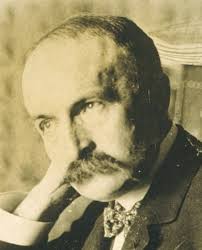
Philippe Bunau-Varilla
Got the Panama canal zone to the US
Started Panamanian revolution
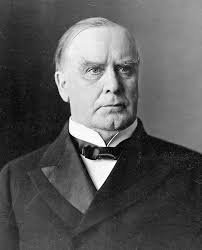
William McKinley
US president that annexed Hawaii
Assassinated so Roosevelt was president
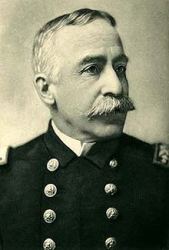
Commodore George Dewey
Victorious over Spanish fleet at Battle of Manila in War with Philippines
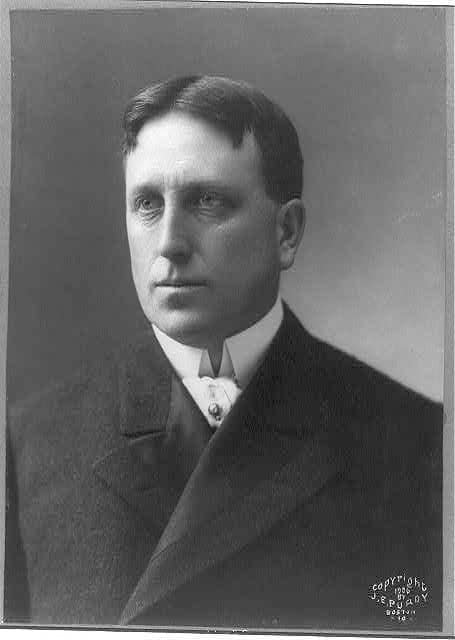
William Randolph Hearst
Newspaper journalist in NY that competed in yellow journalism
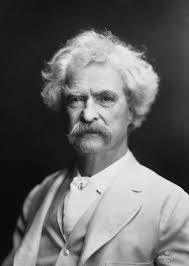
Mark Twain
Vice president of anti-imperialist league
Against “American eagle spreading its talons into foreign nations”
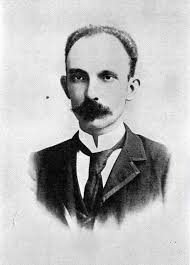
Jose Marti
Leads the Cuban revolt against Spain
Martyred which inspires the Cubans
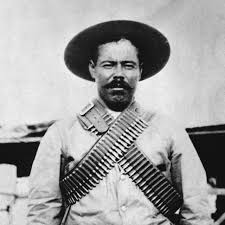
Francisco “Pancho” Villa
Fierce Mexican nationalist that kills American troops
Pershing leads US force to capture him

Queen Liliuokalani
Hawaiian Queen who was deposed by wealthy Americans
Her being overthrow led to Hawaii being a US territory
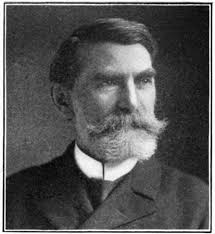
Josiah Strong
Wrote “Our Country” which supported imperialism to spread “civilization”
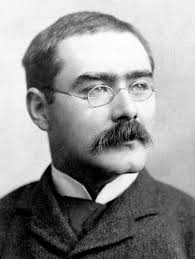
Rudyard Kipling
Wrote “White Man’s Burden” which supported imperialism to spread “superior civilization”
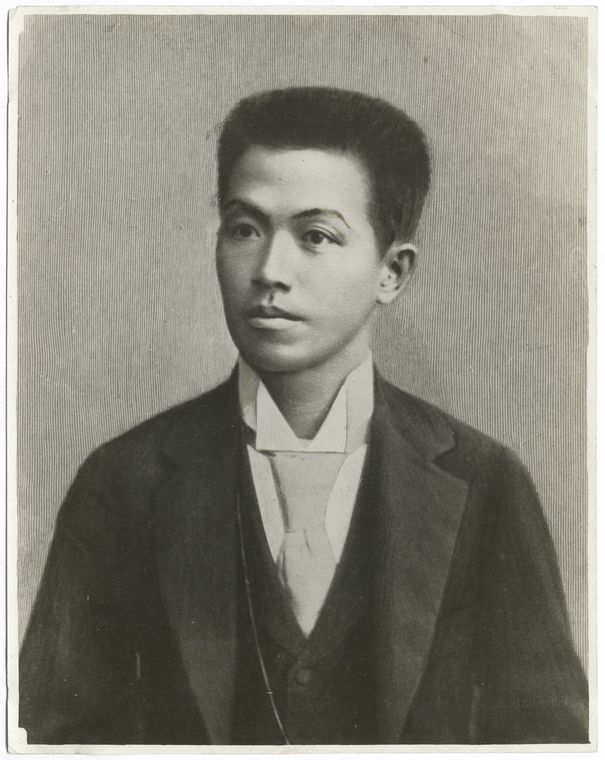
Emilio Aguinaldo
Led Filipino troops in Spanish-American War
Then, led the fight for independence in the Philippine-American War
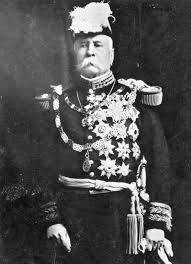
Porfirio Diaz
Dictator of Mexico that prompted the Mexican Revolution
Overthrown by Madero
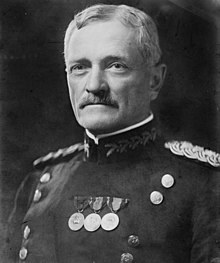
Brig. Gen Pershing
Leads U.S. force to capture Villa
Ordered home bc the US wanted peace on its southern border
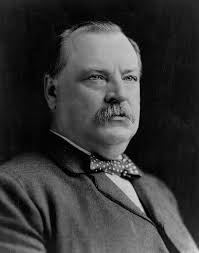
Grover Cleveland
Opposed the annexation of Hawaii
Threatens war against Britain to force them out of Venezuela
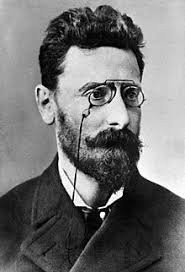
Joseph Pulitzer
Newspaper journalist that competes with Hearst in Yellow Journalism
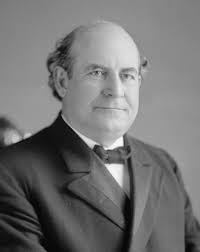
William Jennings Bryan
Secretary of state under Woodrow Wilson
Ran for president unsuccessfully three times
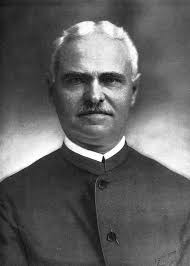
George Washington Goethals
First governor of panama canal zone
Came up with the idea to create the canal
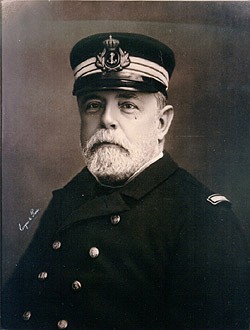
Admiral Pascual Cervera
Admiral in the navy during the Spanish American war
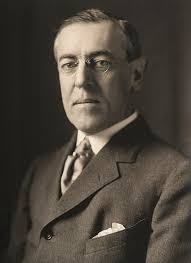
Woodrow Wilson
Refuses to recognize countries that are undemocratic
Creates Moral Diplomacy: aimed to promote democracy
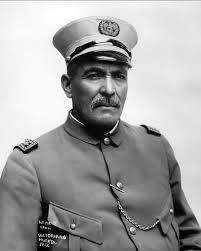
Victariano Huerta
Stages coup against Francisco Madero and has him killed
He causes the Occupation of Veracruz
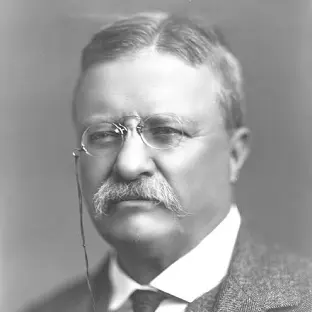
Theodore Roosevelt
Creates Big stick diplomacy : speak softly but with a big stick
Becomes President after McKinely was assassinated
Creates corollary which allow the US to interfere with Latin America to prevent European conflicts
Awarded Nobel Peace Prize for helping negotiations between Russia and Japan
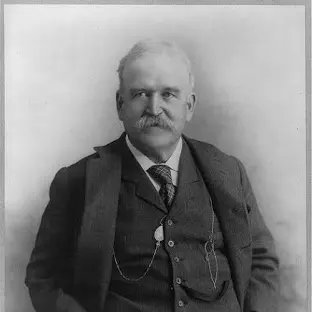
John D. Long
Secretary of the navy during SAW
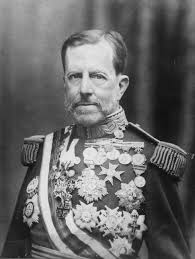
Valeriano Weyler
Sent to restore order in Cuba
Sends native Cubans to reconcentration camps to “protect” them from insurgents
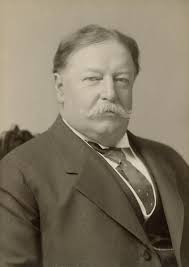
William Howard Taft
Tries to enforce dollar diplomacy: bolster US influence instead of using military force
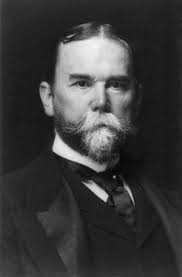
John Hay
Establishes Open Door Policy : asks imperialists to share trading rights in China
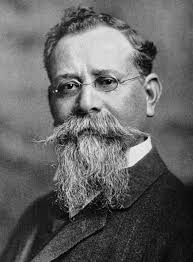
Venustiano Carranza
Takes over from Huerta after Mexican Revolution (becomes president)
what’s your favorite color
pink!
Insular Cases
A series of Supreme Court cases in the early 20th century which addressed the legal status of overseas territories of the United States - limited the scope of constitutional protections to the people of Puerto Rico, Guam, and the Philippines
Jones-Shafroth Act
Gave Puerto Ricans U.S. citizenship
Foraker Act
Established a civilian government under US control, which went against the wishes of Puerto Rican people who desired independence
Hay-Pauncefote Treaty
It allowed the U.S. to build and control a canal across Central America, while also granting British ships access to the canal.
Hay Bunau-Varilla Treaty
Provided the United States with a 10-mile wide strip of land for the canal, a one-time $10 million payment to Panama, and an annual annuity of $250,000